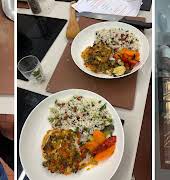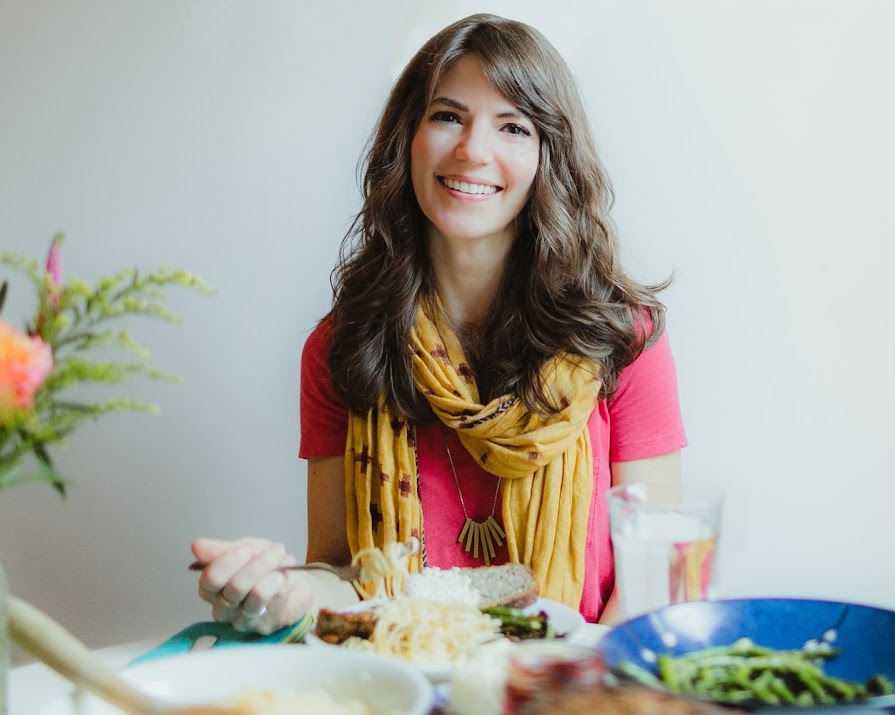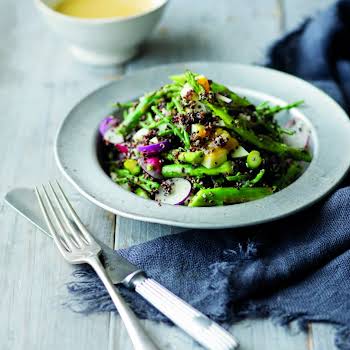
How intuitive eating can help you make peace with food and break free from diet culture
By IMAGE
08th Nov 2020
08th Nov 2020
Are you stuck in the diet mentality of ‘good’ and ‘bad’ days? Christy Harrison, author of Anti-Diet, explains how intuitive eating can help you finally make peace with food
Here’s a quiz to gauge your stage of letting go of diet-culture thinking: Which is a better food choice, an apple or a burger?
If you picked the apple, that’s totally understandable coming from diet culture. One of its hallmarks is demonising some foods while elevating others, and at this point in history the foods it tends to elevate are so-called “whole” foods such as apples. Things like burgers — particularly the fast-food varieties — are the ones that get demonised.
In reality, though, the answer to which of these two foods is “better” is neither. The burger and the apple are equal in moral value — in that neither of them has one. One is not even categorically “better” than the other in a nutritional sense, although each of them might be more helpful for different purposes.
For example, the apple is crunchy, refreshing, and full of fibre. If you’re in the mood for something sweet, you’d be better off with the apple (or a cookie, or some candy), but it’s certainly not a satisfying choice if what you really need is a sustaining meal. The burger makes a lot more sense for that purpose, and it’s also comforting, delicious, and full of important nutrients — plus it’s affordable and convenient, if we’re talking about a fast-food version.
‘This thinking flies in the face of everything diet culture teaches us about food’
That’s why one of the key tenets of intuitive eating is that there’s no such thing as “good” or “bad” food. This thinking flies in the face of everything diet culture teaches us about food. Yet when you destigmatise foods and look at them all as equally worthy options, it takes away the irresistible pull toward “forbidden” foods (don’t those always taste the sweetest?). Instead, you’re able to choose what you truly want and need in any given moment.
Refusing to follow diet culture’s rules about “good” and “bad” foods gives you back the power and the agency to make your own decisions about what to eat. It removes the physical and emotional deprivation that go along with “being good” by diet culture’s standards. It restores your autonomy.
Thus, making peace with all kinds of foods, even the formerly “forbidden” ones, supports your mental and emotional health as well as your physical well-being. Research has shown that intuitive eaters, who don’t have any “off-limits” foods or follow any diet-culture rules, have better health outcomes on an impressive array of measures: lower cardiovascular risk, decreased triglyceride levels, more-favorable levels of HDL cholesterol, lower rates of disordered eating, less likelihood of feeling out of control with food, less food-related anxiety, less internalisation of the thin ideal, lower levels of body dissatisfaction and shame, greater enjoyment of food, increased body appreciation, less self-silencing behaviour, higher sensitivity to their own internal states, higher levels of self-compassion, greater life satisfaction, more proactive coping skills, and better self-esteem.
People don’t drop dead when they let go of diet culture’s rules, tune in to their bodies’ cues and desires, and figure out what they enjoy eating. On the contrary, they increase their chances of having positive health outcomes. Not restricting or feeling guilty about food means you free yourself from emotional and physical deprivation. You get off the Restriction Pendulum and find peace.
Anti-Diet by Christy Harrison is published by Yellow Kite
Photo: ChristyHarrison.com
Read more: My ravenous consumption of ‘What I Eat in a Day’ videos was fuelled by disordered eating
Read more: Women are still tirelessly striving to be thinner, but now they can’t even admit to it
Read more: Good food versus bad food: the dirty side of so-called ‘clean eating’























